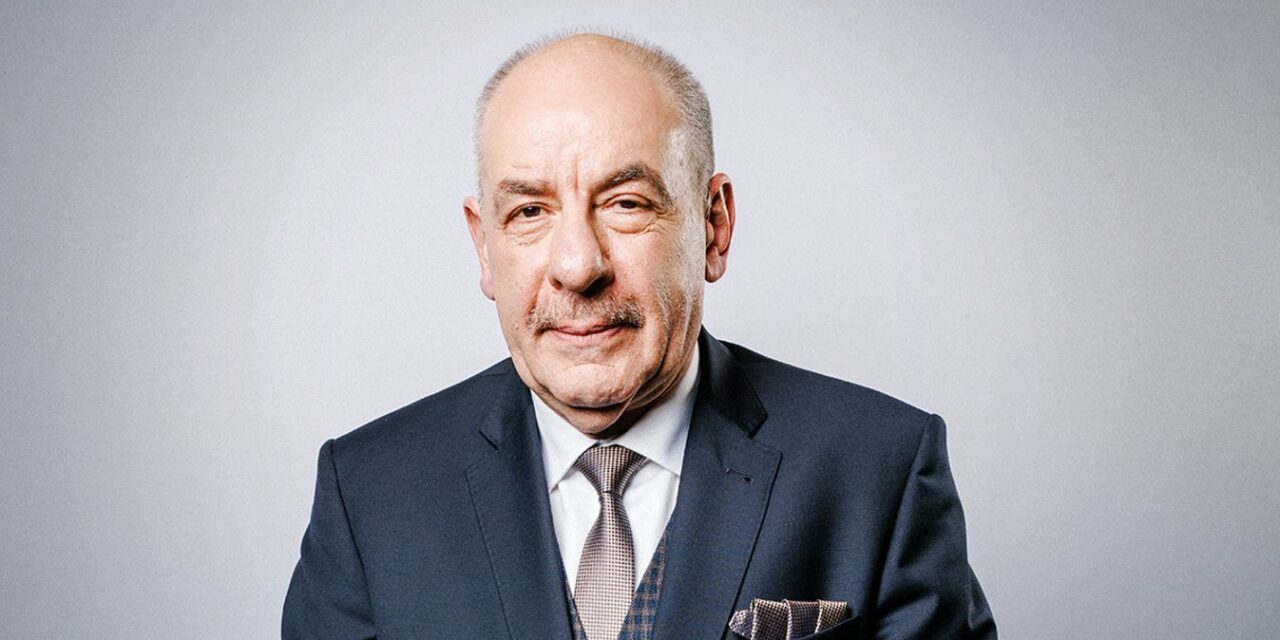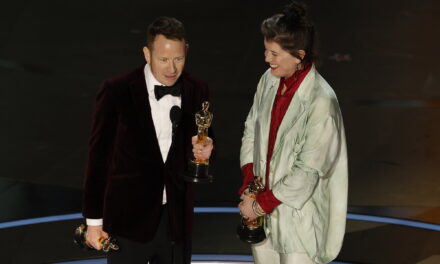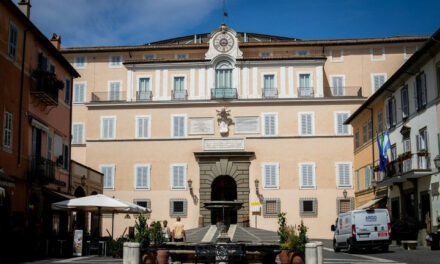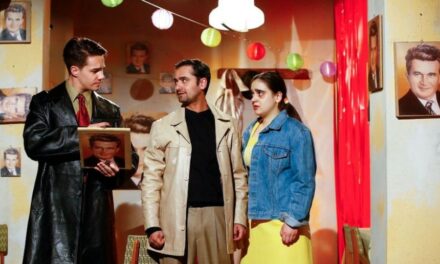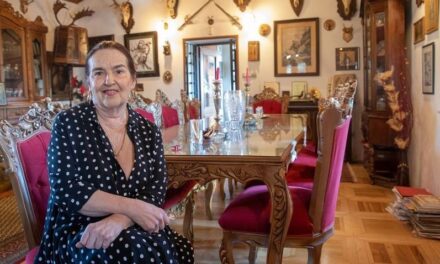How can public trust in the institution be restored? Can the president of the republic engage in politics? Is the government's fight for sovereignty legitimate? Tamás Sulyok also revealed what kind of innovation he is planning in the presidential operation. Interview.
Lake Balaton, hiking, peaceful retirement years - this is what he resigned for the post of president of the republic. What did Viktor Orbán convince him of?
I believe that when someone is invited to the position of President of the Republic, too many convincing arguments are not needed. A more honorable life event cannot happen to a Hungarian person. There is no doubt that the invitation came suddenly and unexpectedly, so the family had to re-plan, but everyone supported my decision.
How did the invitation come about, when did you first talk to the prime minister? How much thought did you put into taking on the task?
The request came shortly after the resignation of the president Katalin Novák. I didn't think much, I answered that day, and with my wife's approval I was able to appear before the Prime Minister.
He is not in an easy situation, because of the pardon case there is a lot of distrust towards the presidential institution of the republic.
The social impact of the pardon case is instructive for everyone. In my worldly life, I paid attention to what was most important in my work. The focus is still there, which is the most essential: to express the unity of the nation and watch over the democratic functioning of the state system. According to my experience so far, diligent and efficient work always pays off, and I trust this in the future. I try to meet all the expectations that the nation places on me.
The family legendarium preserved what happened to my father as I stated earlier.
Before he even took office, a previous interview was found in which he talked about how his father was forced to hide for years due to his death sentence in the Rákosi system. According to historians László Karsai and Krisztián Ungváry, this is not true, and he is actually trying to portray himself and his family as victims of communism. What is the truth?
I consider the accusations against my father to be a sexual attack. It is an undignified situation, which, since it is about my family, causes great pain. I can say that before the system change, as for most Hungarians, the past was taboo in our family. But there was, and still is, a family legend that preserved what happened to my father, as I stated earlier. I don't want to repeat this, I don't want to burden public life with pointless debates. The parliament elected me, and not my father, who died before the regime change, as president of the republic.
László Karsai accused his father of Nazi collaboration, saying that in 1944 he had published an article with an extreme right-wing tone in a county newspaper - although, at a later court hearing, three witnesses claimed that he had not written it. Did László Sulyok have anything to do with this?
My father was a socially sensitive, patriotic, philo-Semitic person. I find it inconceivable that he wrote the article in question.
At the time of his election, he promised that he would also work for a fair balance of constitutional fundamental rights and values from the seat of the president of the republic. The opposition parties see his activities so far differently: he has been called a party soldier, Viktor Orbán's ballpoint pen, and they believe that the Constitutional Court is filled with members loyal to Fidesz. What do you think about these accusations?
These are biased political criticisms driven by powerful interests. The constitutional duty of the President of the Republic is to express the unity of the nation in the given political situation and environment. This is quite a challenge. I am convinced that, as I just mentioned, results can be achieved with persistence and patience. I will work to create social peace.
The opposition proposed a direct presidential election following the amnesty case. What do you think about the proposal from a constitutional point of view, would it be relevant?
I consider all professional and political debates that serve the purpose of making our constitutional system work more efficiently important, and I listen to the parties involved in the debate. However, as President of the Republic, it is no longer my task to participate in them.
The President of the Republic of Hungary has never pursued such a successful foreign policy activity as that of Katalin Novák.
Are there any heads of state after the regime change whose work can be inspiring?
It would not be elegant to mention one of my predecessors. I have always operated by trying to learn from everyone what can be used. I have the greatest insight into the work of my immediate predecessor, so perhaps I will be able to take that into account the most in everyday life, but I also highly valued the activities of President János Áder.
Can the head of state politicize, does he have to criticize the government for a decision?
The Hungarian constitutional system determines the head of state to a restrained political position. Ours is similar to the German system, that is, a chancellery-type government is implemented, and the president is weak, so this is not a position elected directly, but by parliament. Policy is in the hands of the legislature and the executive, with the president playing a sort of balancing role. I think this is correct.
Both János Áder and Katalin Novák testified that if a hundred good laws were presented to him, he would sign a hundred, and if a hundred bad ones, he would send back the same number. What will be your credo?
Again, I would like to refer back to the peculiarity of the Hungarian constitutional system. In our country, the constitutional veto and preliminary norm control is considered an exceptional procedure, in contrast to, for example, Romania, where a preliminary norm control can be initiated not only by the President of the Republic, but also by other actors at the Constitutional Court. Hungarian presidents rarely use this tool, and based on our constitutional system, it is expected that I will only use it in exceptional cases.
The Prime Minister recently submitted the thirteenth amendment to the Basic Law. There is a lot of criticism of the government due to the numerous changes to the constitution, how harmful do you think this practice is?
A lawyer must discipline himself to accept what follows from the peculiarities of the constitutional system. The constitutional power is clearly defined in the Basic Law: two-thirds of the Parliament. The latter has full freedom to amend, rewrite, and adopt a new constitution. The president of the republic can use the tools defined in the constitution, he can exercise them, but he does not have to have an opinion. There are rigid and flexible constitutions; for example, the United States has the most rigid constitution, it is almost impossible to modify it, and the Romanian and Belgian constitutions can only be changed based on extremely complicated rules. The peculiar situation has arisen that the same political force has had constitutional power in Hungary for fourteen years. Many people in Europe don't understand this, and you can like or dislike the situation, but it's still a fact: it follows from the principle of popular sovereignty.
Sweden's entry into NATO can also strengthen the relationship between the member states within the union.
When he was elected, he indicated that he would strive for the greatest possible transparency in pardon cases. What changes are expected in the procedure?
I will review the practice so far. As a lawyer - as a lawyer or a constitutional judge - I have been somewhere around the judiciary all my life, so I fully respect the decisions that have been made and are legally binding. This is a basic creed for all lawyers. It also follows that cases of mercy are exceptional; clemency has the right to exist when events that raise questions about the execution of the sentence occur after a judgment, or when unforeseen, unusual, extraordinary circumstances arise during the procedure. I would like to apply an interdisciplinary professional approach by listening to the opinions of specialists who can shed light on professional results related to the specific execution of punishment or the physical and mental state of the person concerned. Based on this, I can imagine pardons in extremely exceptional cases in the future.
His first decision was to sign Sweden's NATO accession, voted by the Parliament. After nearly two years, the Hungarian parliament was the last to vote on the ratification, is it correct that the process has been so long?
On the day I took office, I was assigned the task of certifying the ratification document. A very positive change occurred in the Swedish-Hungarian bilateral relations with the fact that Hungary voted to join, and this development can also strengthen the relationship between the member states within the European Union. Sweden's entry will significantly increase NATO's defense power.
Hungary also delayed NATO expansion because, according to the governing parties, the Swedes did not treat us well in the EU debates of recent years - was it correct to argue this way?
How it conducts the negotiations is the task and responsibility of the executive branch, and when and how it decides is the responsibility of the legislative branch. The role of the President of the Republic is to sanction the decision with his signature, which I did.
In the field of foreign policy, your predecessor was extremely active, are you preparing for a similarly prominent diplomatic role?
The President of the Republic of Hungary has never previously pursued such an active and successful foreign policy activity as Katalin Novák. This will definitely enter our public knowledge as his historical merit. It is also a fact that in Hungary's foreign policy, the President of the Republic fulfills a symbolic, protocol-related role. I will always be active in Hungarian foreign policy if it is necessary for the purpose of expressing the unity of the nation, asserting our country's foreign policy interests or representing our national values at the highest level. To this end, I will of course cooperate with the executive branch.
Will he be pro-Western, Atlanticist or a president working in the spirit of opening up to the East?
As I said, the president of the republic is not a political actor in foreign policy, at most a political factor. The direction of foreign policy is determined by the executive branch. Personally, I have always considered peaceful coexistence and the differentiated relationship between states to be the most important principle of foreign policy and international law. I am open to meetings with representatives of all states, I first received the president of the Mongolian State Grand Chamber in the office of the president of the republic, and we had a cordial, almost friendly exchange of ideas. Of course, I will negotiate with representatives of any European state with the same openness, emphasizing peaceful coexistence, mutual benefits, and respect for each other's values.

